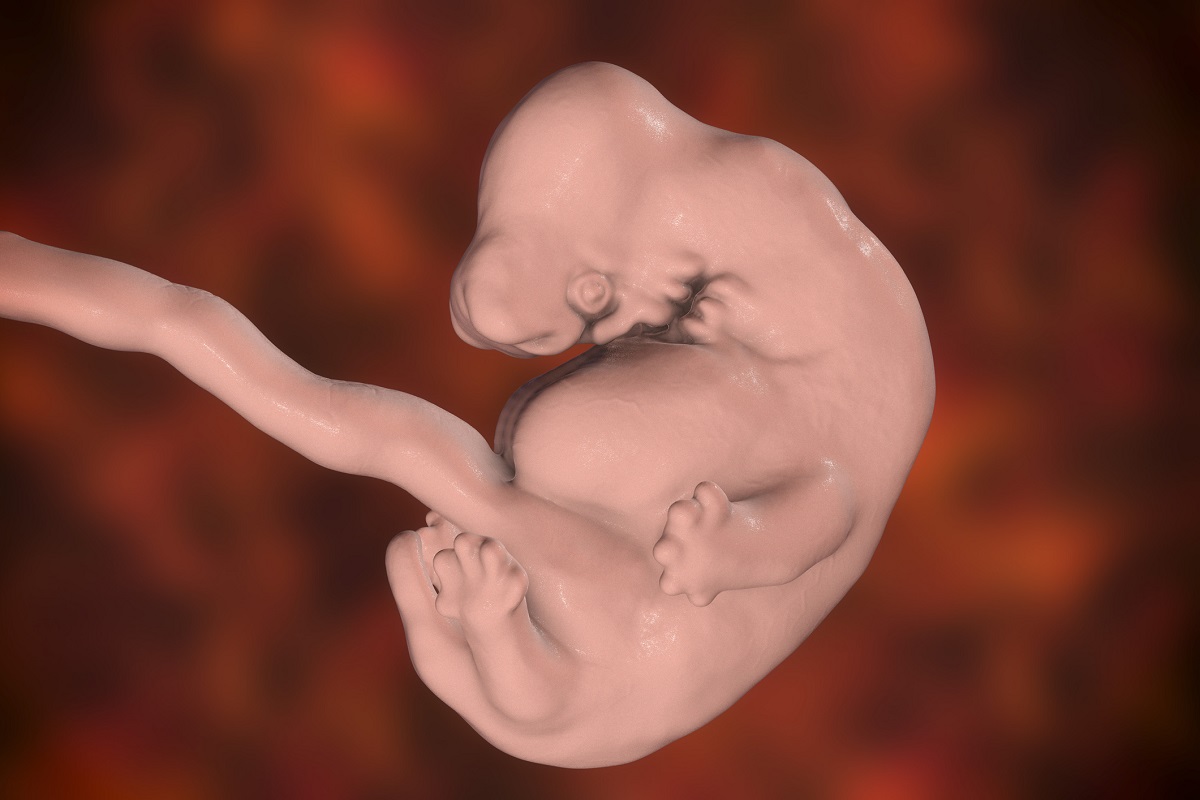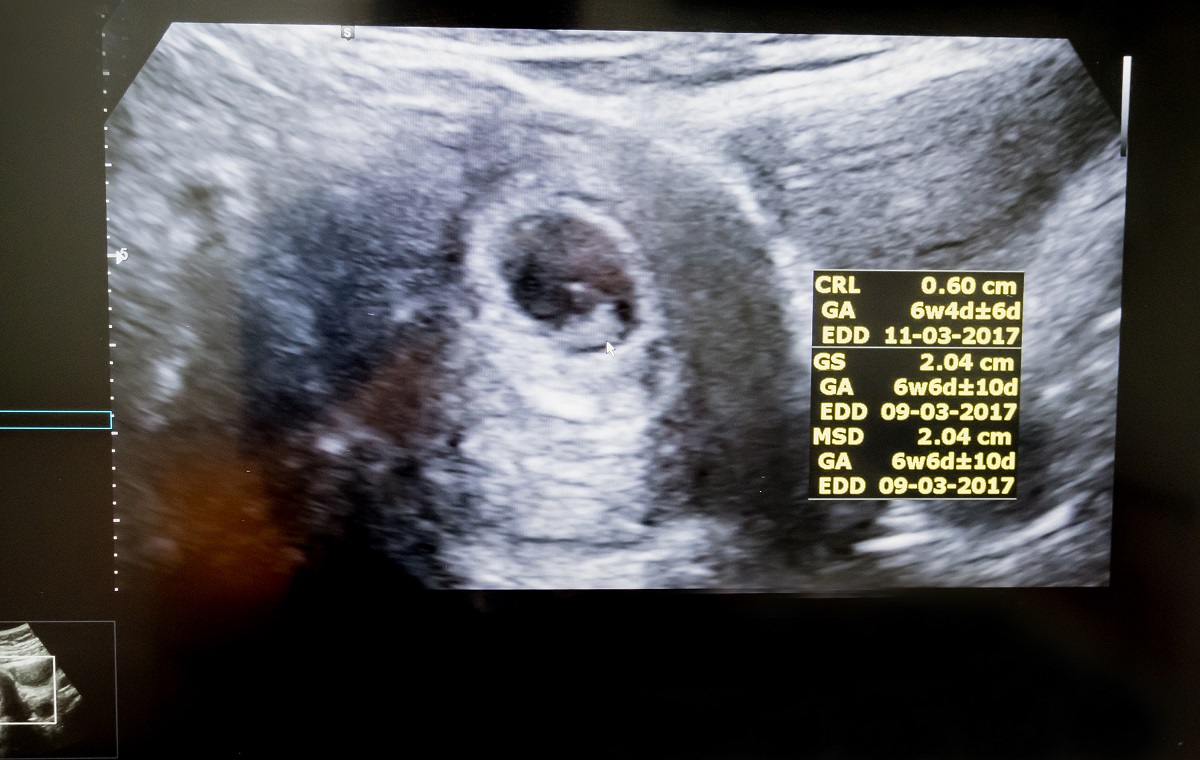- Pregnancy and childcare: Jane Symons
- Langman's Medical Embryology: Thomas W. Sadler
- Whattoexpect.com - 6 Weeks Pregnant
- verywellfamily.com - Week 6 of Your Pregnancy
- medicalnewstoday.com - Your pregnancy at 6 weeks
- flo.health - 6 Weeks Pregnant
- healthline.com - 6 Weeks Pregnant: Symptoms, Tips, and More
- nhs.uk - Week-by-week quide to pregnancy
Week 6 of pregnancy: are you starting to suffer from morning sickness?

Your baby is growing at lightning speed, his development is very fast. During this period, body parts and their systems are developing and forming, so he is especially very sensitive to adverse environmental influences.
Article content
You are 6 weeks, 2 months and 1 trimester pregnant.
It's been 6 weeks since your last period and 4 weeks since fertilization.
You have probably only just found out the good news that you are pregnant a few days ago. This is a new period for you, full of anticipation and emotions. You may already be experiencing the first pregnancy symptoms, which can sometimes be uncomfortable.
How is the baby developing in the 6th week of pregnancy?
Your baby is still very small, but it is already forming and all the important systems are developing.
The fetus is growing rapidly and has doubled in size since last week. It will do so again this week.
The yolk sac is sonographically visible from this week onwards. From 6.5 weeks onwards, the CRL distance from the vertex to the coccyx can be measured in the fetus.
The size of the embryo from the beginning to the end of the 6th week ranges from approximately 3 to 6 mm.
You can read more about fetal size in our article.
So far, the embryo is shaped like the letter C and the body parts are beginning to be recognizable.

It has a large head and a tail at the end of the buttocks that will gradually develop into a spine.
Its head is forming and already taking shape. Along with it, the chin, cheeks and jaw are beginning to form.
Depressions have formed on either side of the head as the basis of the ear canals and ears, which are in the process of developing.
The small dots on the face will turn into eyes in a few weeks.
The neural tube, which has been open so far, will close completely this week.
The brain and spinal cord are developing.
A thin layer of skin covers the embryo's body.
The arms and legs begin to grow.
The ribs, which will protect the heart and lungs, begin to emerge from the thoracic vertebrae. The ribs are very soft at first, like a hair. Later, they begin to gain strength.
The heart has already started beating around the end of week 5 or the beginning of week 6. It is still very simple, but it is already pumping blood to the body. Its heart rate is about 110-150 beats per minute.
Organs such as the liver, kidneys, and lungs are also beginning to form this week. Brain and musculoskeletal development is beginning.
The digestive, reproductive and urinary systems begin to develop.
The umbilical cord connects the fetus to the placenta, ensuring its nutrition and oxygenation.
The period of fetal development is particularly risky and very sensitive to adverse environmental influences. Therefore, try to follow a good diet, do not drink alcohol, do not smoke, and do not take medications that you do not need. Avoid chemicals and infections. Adverse environmental influences can endanger fetal development and cause developmental congenital anomalies, even inducing miscarriage.
How does a woman feel in the 6th week of pregnancy?
Outwardly, you are not changing yet, but there are a lot of new things happening in your uterus and in your body. It is a huge change for your body.
A woman may experience different symptoms similar to premenstrual syndrome or already starting morning sickness. All of these symptoms are normal. Your body is letting you know that it is producing hormones at the right time and supporting the baby's growth.
Frequent urination during the day, but also waking up at night because of the need to urinate is often tiring. This also happens because of the hormone hCG, which makes the pelvic area bloodier and makes your kidneys work harder. The uterus is also more blooded and puts pressure on the bladder.
In the second trimester, the uterus slides higher and frequent urination subsides.
Another early pregnancy symptom is tender breasts. Your breasts grow, gain volume and your nipples start to protrude more.
Fatigue often accompanies the entire pregnancy. Pregnancy hormones, increased blood volume, changes happening in the body and all the physical and emotional changes can cause increased fatigue. Try to get enough sleep, eat right and limit stress.
Nausea and vomiting. Morning sickness is one of the common pregnancy symptoms, especially from the 6th week of pregnancy onwards. Try to eat smaller portions of food. Have something lighter for breakfast, such as wholemeal biscuits, yoghurt - anything that doesn't weigh your stomach down and that your stomach can digest.
The feeling of nausea and vomiting can come on you at any time of the day, but most often in the morning. But it can turn into afternoon, evening, and even nighttime nausea. Some women, on the other hand, can't wait for the morning when they feel their best.

A few options for dealing with nausea:
- Eat smaller portions of food and more often during the day. Your digestion is slower due to pregnancy hormones.
- Prepare cookies for bed and snack on them about 15 minutes before getting up.
- Do not keep the room where you sleep too warm. Avoid overheated and warm rooms. Heat increases the feeling of nausea.
- Do not go to bed immediately after eating.
- Keep food that you can digest well with you so that you can have a bite at any time.
- Avoid spicy and fatty foods that strain digestion.
If you suffer from frequent vomiting, tell your gynaecologist. If you skip meals during the day because of nausea, don't worry. It won't harm the growing foetus. Reach for water instead of food to stay hydrated.
Bloating and constipation. Your digestion is slowed down by the hormone progesterone, and gas begins to build up more in the intestines and stomach.
Other symptoms of pregnancy due to hormones are:
Indigestion and heartburn. Your digestion works slower during pregnancy due to hormones that slow it down.
Some women in early pregnancy may also experience a metallic taste in the mouth.
Mood swings can surprise you too. You may burst into tears just looking at a picture or get upset about a small thing you didn't care about before. Also, great joy and happiness can suddenly turn into sadness and tearfulness without any cause. It's an emotionally challenging time.
Theheadache may occur more often. Its cause may be hormonal changes happening in a pregnant woman, fatigue, stress, high blood pressure, but also the beginning of pre-eclampsia.
You can smell things you don't want to smell. Smells can make you nauseous. You can smell what the neighbour's cooking, you can't walk past a restaurant without feeling nauseous or craving a treat.
Increased vaginal discharge of a milky color is normal.
You can read more about discharge in pregnancy in the article.
By blooding the pelvic area, your libido has probably increased, you have more desire for sex, which you experience much more intensely. Sex in pregnancy is safe and does not in any way endanger the developing fetus.
Visiting a gynaecologist in the 6th week of pregnancy
In this week, you will probably visit your gynecologist to confirm the pregnancy.
Your gynaecologist will examine you with a vaginal probe to confirm your pregnancy. You will see a small dot on the sonographer's screen with an audible heartbeat. The nesting of the egg in the uterus is also monitored.

After confirming the pregnancy, your gynaecologist will ask about your health. He will write down all the important information about you, whether you have any illnesses, allergies, what medications you are taking. He will measure your blood pressure and weigh you.
Blood tests will be scheduled to check your blood count, blood type and Rh factor, check your hormone levels, antibodies for toxoplasmosis, rubella, syphilis, HIV, chlamydia, and test your urine for protein.
What we recommend and what to watch out for
- Take folic acid, which has a beneficial effect on healthy fetal development.
- Prenatal vitamins are the most suitable supplement for pregnant women to replenish all the vitamins needed for healthy fetal development.
- If you feel tired, then lie down and rest. An afternoon nap is only beneficial for you.
- Practice moderate exercises during the day for at least 30 minutes. Exercise will help you stay fit.
- Go for a walk. Being out in the fresh air is not only good for your immunity but also for your physical or mental fitness.
- Eat healthily, add fresh vegetables, fruits, nuts to your diet.
- Avoid unpasteurised dairy products and raw meat.
- When eating meat and eggs, make sure foods are sufficiently overcooked.
- Avoid alcohol, tobacco and drugs.
- Use caution when taking medicines and always make sure that the medicine is suitable for pregnant women.
- Beware of cleaning products and chemicals. Avoid them or use protective gloves when handling them. Natural cleaning products are recommended rather than using harsh chemicals. Chemicals can enter the body not only through the skin but also through the respiratory tract and adversely affect the development of the foetus.
What to avoid and what diet to watch out for can be found in the previous article.
You might be interested in:
- How long does pregnancy last? How many days, weeks and months?
- With folic acid to the longed-for baby and healthy blood vessels?
- No, false, possible or certain first signs of pregnancy. When do they appear?
- How much to gain during pregnancy? What does it depend on and what to look out for?
You can read more about fetal development in our article.
Gallery



Interesting resources
Related










